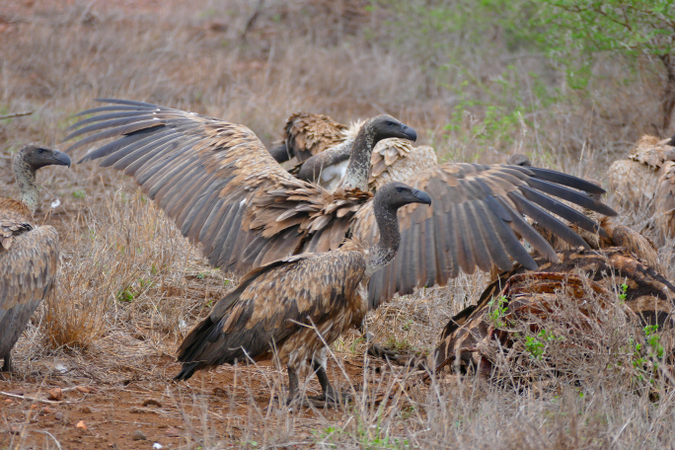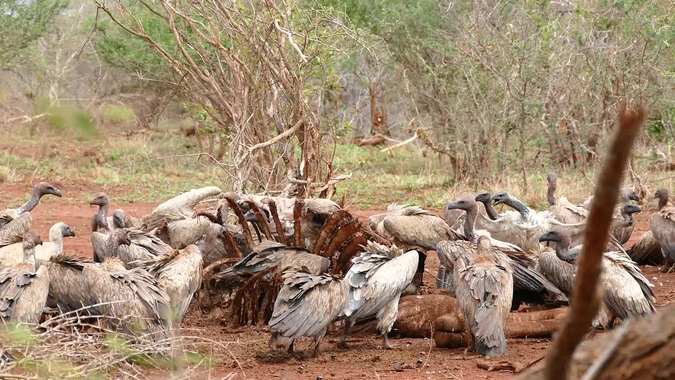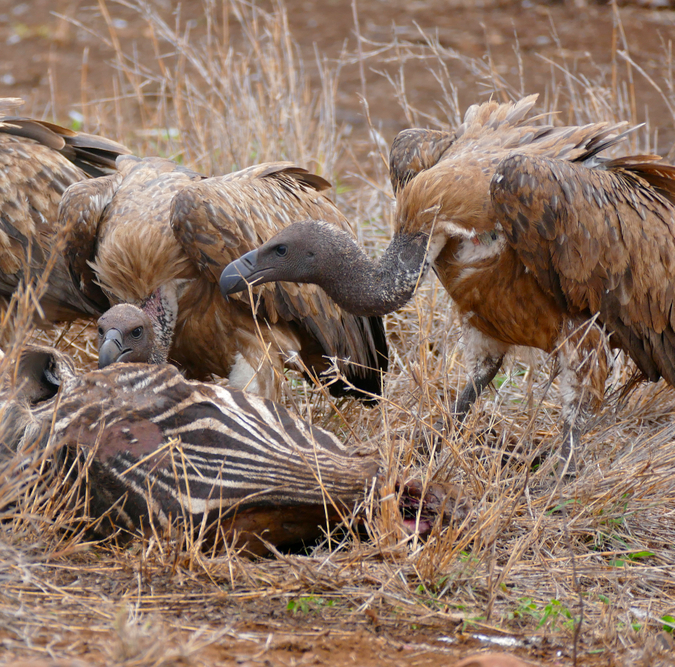
DECODING SCIENCE POST by AG Editorial
Research in Botswana has revealed that fragments of lead from recreational hunter ammunition are finding their way into vulture bloodstreams, and represent a significant threat to these critically endangered scavengers.
Lead toxicity caused by the ingestion of lead ammunition fragments in carcasses and offal, which are a food source for vultures, is a threat to scavenging birds across the globe.
The research focused on the critically endangered white-backed vulture (Gyps africanus) in Botswana. Blood levels of 566 vultures were measured inside and outside of the hunting season, and inside and outside of private hunting areas. Note that the hunting ban in Botswana only covers communal and government land; hunting of some antelope and other species is still permitted on private, fenced land.


At least 30.2% of vultures tested showed elevated lead levels, with higher levels associated with samples taken inside of the hunting season and from within hunting areas. Additionally, lead levels declined more steeply between hunting and non-hunting seasons within hunting areas than outside of them.
The researchers concluded that elevated lead levels in this critically endangered African vulture are associated with recreational hunting. They recommend that toxic lead ammunition in Botswana is phased out as soon as possible, to help protect this rapidly declining group of birds.
Full report: Science of The Total Environment, Rebecca Garbett, Glyn Maude, Pete Hancock, David Kenny, Richard Reading, Arjun Amar: Association between hunting and elevated blood lead levels in the critically endangered African white-backed vulture Gyps africanus

To comment on this story: Login (or sign up) to our app here - it's a troll-free safe place 🙂.![]()






